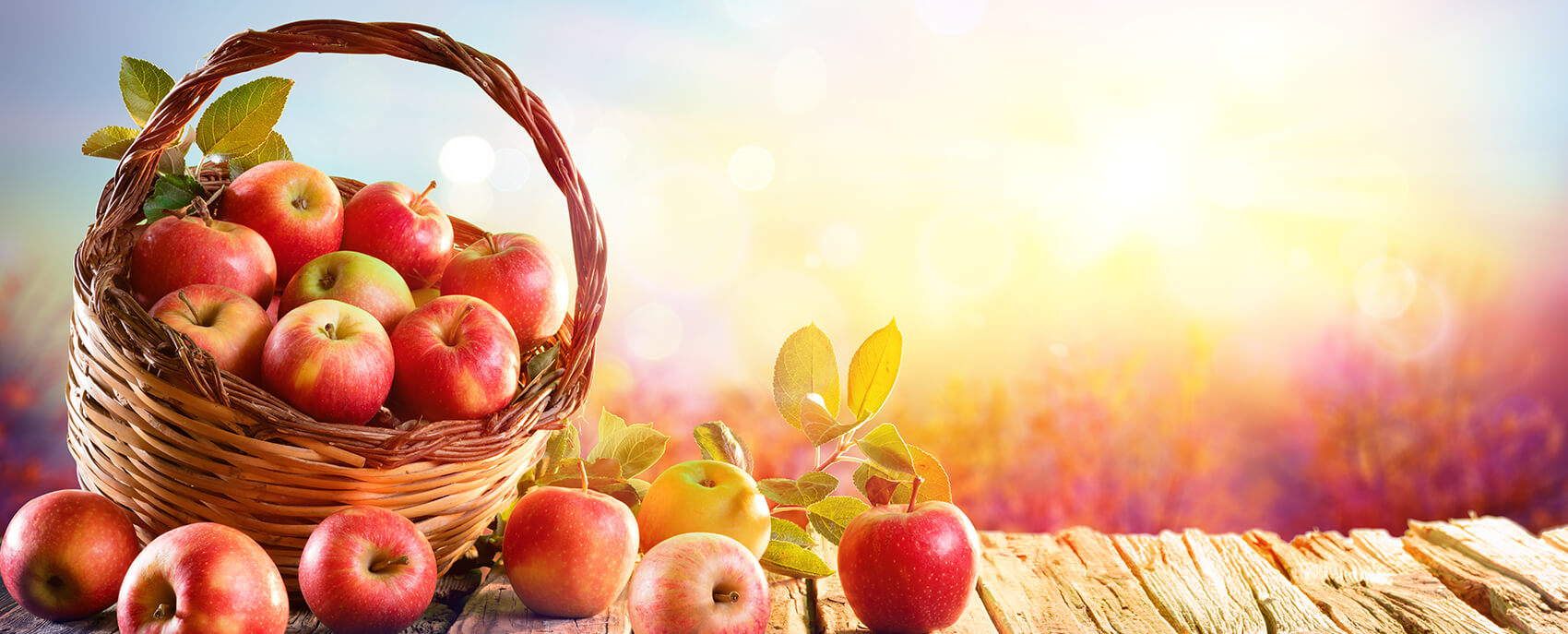Without a doubt, each of you has heard that each day we should eat 5 servings of vegetables and fruits. Why? According to the evidence presented in the World Health Organization report, low consumption of fruit and vegetables is one of the 10 main risk factors contributing to increase in mortality. Hence, including them in our daily diet prevents us from serious civilization diseases. In addition, the consumption of various fruits and vegetables ensures the total demand of most micronutrients, dietary fiber and other substances important for our body. It is not without reason that in recent years the food pyramid has been modified so that its base consists of fruit and vegetables, which proves that they should be the basis of our diet.
Vegetables - important source of various nutrients
The biggest advantage of vegetables, in addition to their low calorific value, is that they are a source of huge amounts of vitamins. They contain beta carotene as well as B, C, E, K and PP vitamins, regulating the processes inside our body - metabolism and digestion, proper functioning of the cardiovascular system, blood pressure control, cholesterol metabolism, immunity and wound healing. Dietary fiber, also found in abundance in vegetables, has a huge role in the proper functioning of the intestines, preventing constipation. It also lowers cholesterol, which reduces the risk of cardiovascular diseases.
What about the fruits?
Most of them are considered medium-calorie products. They are a source of simple sugars, mainly fructose, so it is recommended to consume 2 servings of fruit per day - not exceeding 500 grams. Fruits contain vitamins A, E, C, flavonoids, enzymes, minerals as well as fiber and antioxidant substances. Chlorophyll of green fruits - avocado, kiwi or gooseberry - supports digestion and liver function. Beta-carotene in turn, present in yellow and orange fruits (lemons, oranges, kaki, pineapples and mandarins…), when digested, turns into vitamin A, which is especially important during the period of growth and necessary in the correct process of vision.
Vegetables and fruits with every meal
In a balanced diet, it is very important that each meal consists of, among others, vegetables. Eating 5 small meals a day, we regularly provide our body with the nutrients it needs for proper functioning, and also ensure that their concentration stays at the same level throughout the day. Frequent consumption of fruits and vegetables will help us maintain a healthy body weight in times when obesity is the main health problem in the world, which entails a lot of other systemic diseases. For some of you, it may seem difficult to introduce such a large amount of fruit and vegetables into your diet - but it does not have to be complicated! Thanks to the huge variety of these products, we don't have to worry about boredom on our plate. The richness of flavors and textures as well as numerous possible preparation methods will allow us to achieve tasty and pleasant variety of the daily diet.
How and when should we eat fruits and vegetables?
Fresh vegetables and seasonal fruits have the highest nutritional value. In Poland, their period of occurrence is quite short, especially in the case of fruits, so in the off-season it is worth choosing frozen fruits and vegetables and vegetable juices, as they enable diet variety throughout the year. The important fact is that fruits and vegetables retain the most nutrients when we don't heat them. How to prepare them to keep as many vitamins and minerals as possible? Steam or pressure cooker cooking is recommended. What is more, most of the vitamins is under the skin, which suggests that you should not peel vegetables and fruits, or do so very thinly.
Choose organic products!
When buying fruits and vegetables, try to choose those from organic farming, marked with a logo with a green leaf. Meta-analyzes of scientific publications on organic food have shown that it contains more vitamins (especially B and C) and antioxidants - as we mentioned, they reduce the risk of cardiovascular disease and cancer and also inhibit the aging process. In addition, it contains a small amount of heavy metals, primarily cadmium, and much less nitrates and nitrites.


